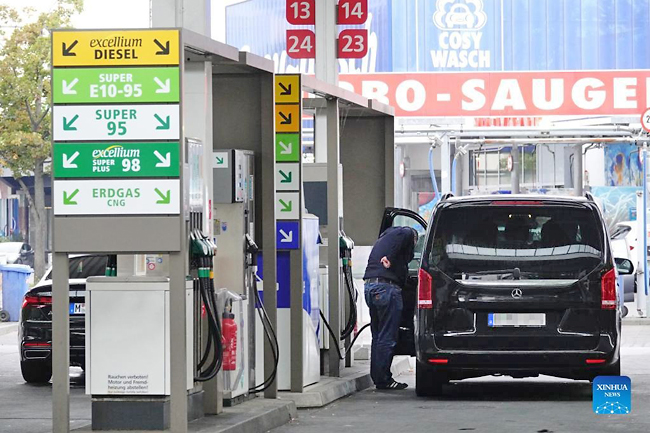AFP – German investor confidence rose more than expected in October, a survey showed yesterday, as the prospect of lower interest rates provided a glimmer of hope to businesses in Europe’s largest economy.
The ZEW institute’s closely watched economic expectations index increased to 13.1 points, up from 3.6 points a month earlier.
Analysts surveyed by financial data firm FactSet had predicted a slightly smaller rise to 10 points.
The increase in October arrested the decline in the indicator, which had been in free fall over the past two months amid gloomy economic news.
The barometer recorded a 22.6-point drop in August, its biggest decline in two years, before falling another 15.6 points in September. From a “very poor” starting point, investor expectations were rising again, ZEW president Achim Wambach said in a statement.
“This is due to the expectation of stable inflation rates and the associated prospect of further interest rate cuts by the (European Central Bank),” Wambach said.
In September, inflation fell to 1.6 per cent in Germany and to 1.8 per cent for the whole of the eurozone.

The figures are far below the highs hit as consumer prices soared in the aftermath of the COVID-19 pandemic and as the current wars pushed up energy prices.
The September inflation reading for the eurozone was also the first time it has fallen back below the ECB’s two-per-cent target in three years.
Breaking through that threshold and weak indicators of economic activity have spurred speculation that the ECB will lower rates again at its next meeting tomorrow.
The bank has already cut its deposit facility twice by a total of 50 basis points, leaving the key rate at 3.5 per cent.
The “positive signals” out of Germany’s key export markets had also boosted confidence among investors, Wambach said.
In particular, the Chinese government’s announcement of a significant stimulus package had led to “increased optimism”, he said.
Germany’s export-oriented economy has struggled to pick up steam in recent months.
Last week, the German government lowered its growth forecasts for 2024, estimating a 0.2-per-cent decline in output.
If the predictions bear out, it would be the second straight year of recession for the German economy.




